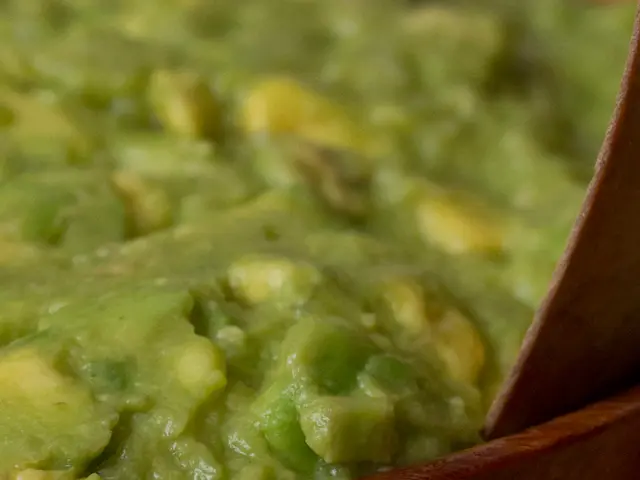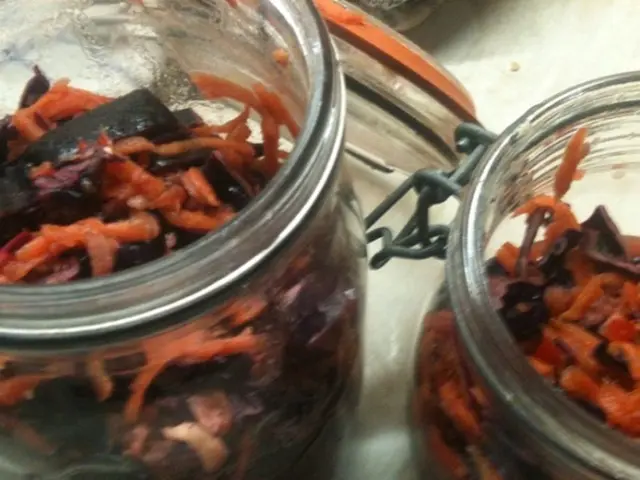Over two dozen individuals diagnosed with Listeriosis were found to have underlying health conditions, or comorbidities, that increase risk, as reported by Public Health France.
In recent developments, authorities in France have initiated massive recalls of certain soft pasteurized milk cheeses with a bloomy rind, following an outbreak of listeriosis that has affected at least 21 individuals and resulted in two fatalities.
The affected cheeses, produced by the Chavegrand company, include popular varieties such as Camembert, Crémeux, bûches, Brie, and goat cheeses. These cheeses, made from pasteurized cow's or goat's milk, were sold on the national territory, including major supermarkets like Leclerc, Carrefour, and Auchan, and were distributed internationally until August 9, 2025.
The implicated products bear the health mark FR 23.117.001 CE/UE. The outbreak has spread across almost the entire French territory, excluding the Pays de la Loire region.
The investigation by Santé publique France and the Ministry of Agriculture has established a possible link between the listeriosis cases and the consumption of these identified cheeses. The ages of those affected range from 34 to 95 years old, with eighteen of the victims being over 65 years old. Eleven of the affected individuals are women and ten are men. Three of the affected individuals were taking long-term medications that could favor digestive infections.
Listeriosis is the second leading cause of death from food poisoning in France, with a few dozen deaths occurring each year. It is a serious infection caused by the bacterium Listeria monocytogenes, which can cause severe illness, especially in vulnerable populations such as pregnant women, the elderly, and those with weakened immune systems.
No contamination of the products by Listeria was detected following the first alert in mid-June, but authorities have taken precautionary measures to recall all batches produced before June 23, 2025. The public is advised to check their homes for any affected cheeses and to discard them.
Authorities are urging consumers to exercise caution and to follow food safety guidelines to prevent the spread of listeriosis. This includes cooking all foods thoroughly, washing hands and surfaces frequently, and avoiding consuming soft cheeses made from unpasteurized milk.
References:
[1] Santé publique France. (2025). Alert sanitaire sur un épisode de listerioses lié à la consommation de fromages. Retrieved from https://www.santepubliquefrance.fr/alerts-sanitaires-et-risques-epidemiologiques/alerts-sanitaires/alerts-sanitaires-2025/alert-sanitaire-sur-un-episode-de-listerioses-lie-a-la-consommation-de-fromages
[2] Ministry of Agriculture. (2025). Recall of soft pasteurized milk cheeses with a bloomy rind. Retrieved from https://www.agriculture.gouv.fr/actualites/recall-of-soft-pasteurized-milk-cheeses-with-a-bloomy-rind
[3] European Food Safety Authority. (2025). Listeria monocytogenes outbreak investigation in France. Retrieved from https://efsa.europa.eu/en/efsa/news/listeria-monocytogenes-outbreak-investigation-france
[4] World Health Organization. (2025). Listeriosis. Retrieved from https://www.who.int/news-room/fact-sheets/detail/listeriosis
- The outbreak of listeriosis, linked to the consumption of certain soft pasteurized milk cheeses, underscores the importance of food safety guidelines in maintaining overall health-and-wellness, particularly in vulnerable populations like the elderly and those with weakened immune systems.
- The cultural practice of enjoying French food-and-drink, such as the affected cheeses like Camembert, Crémeux, bûches, Brie, and goat cheeses, often carries a risk during outbreaks like this, emphasizing the need for scientific understanding and vigilance in mitigating medical-conditions such as listeriosis.
- As the investigation into the listeriosis outbreak continues, it underscores the interconnectedness of lifestyle factors, including dietary choices, with overall health and well-being, highlighting the necessity of integrating health-and-wellness considerations into our choices related to food-and-drink and culture.




